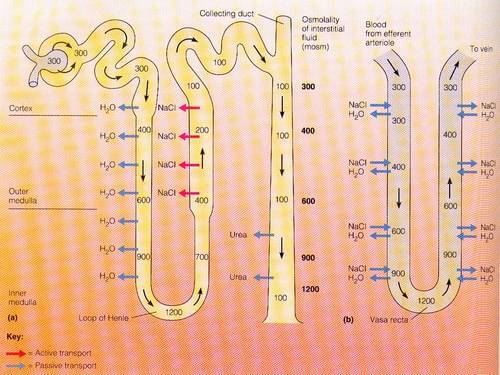The term counter-current means flow in opposite direction. The renal counter-current mechanism comprises of: Flow of filtrate in opposite direction in nephron loop (down the descending limb and up the ascending limb of LOH or Loop of Henle) – that functions as a counter-current multiplier Flow of blood in opposite…
Tag: Renal and Electroloyte
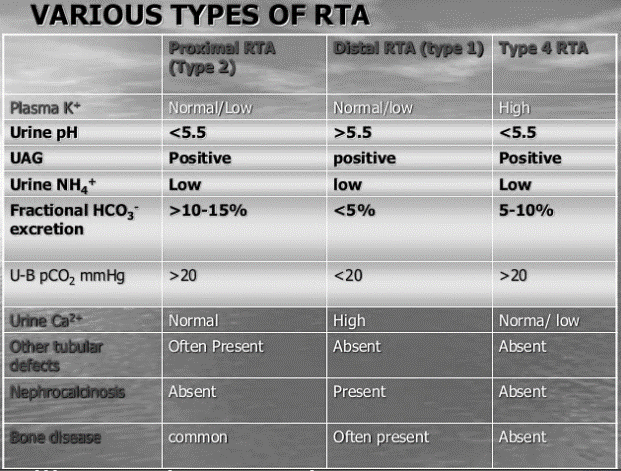
Renal Tubular Acidosis (RTA) : Mnemonics
Renal Tubular Acidosis (RTA) cause non-anion gap metabolic acidosis. Type 1: H+ excretion defect (A proton or 1st element of periodic table) This occurs in distal tubule (hence, distal defect) K+ is excreted instead of H+ causing Hypokalemia. Distal tubule H+ is non-functioning – urine pH >5.5. Chronic acidosis leads…
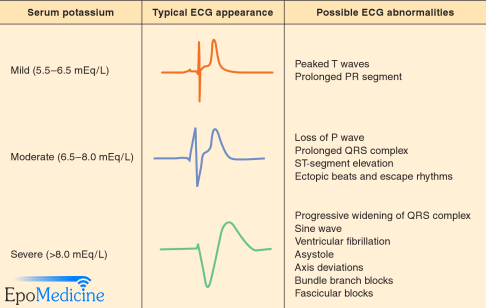
Hyperkalemia Management – Mnemonic Approach
Mnemonic: C BIG K D Calcium gluconate (Cardiac stabilizer) It is generally accepted that calcium should be given when there are ECG changes associated with hyperkalaemia. Calcium gluconate 10% 10-30 ml IV (1-3 gm) over 5-10 minutes (Can be repeated after 5 minutes if ECG changes persistent) 0.5 ml/kg in…
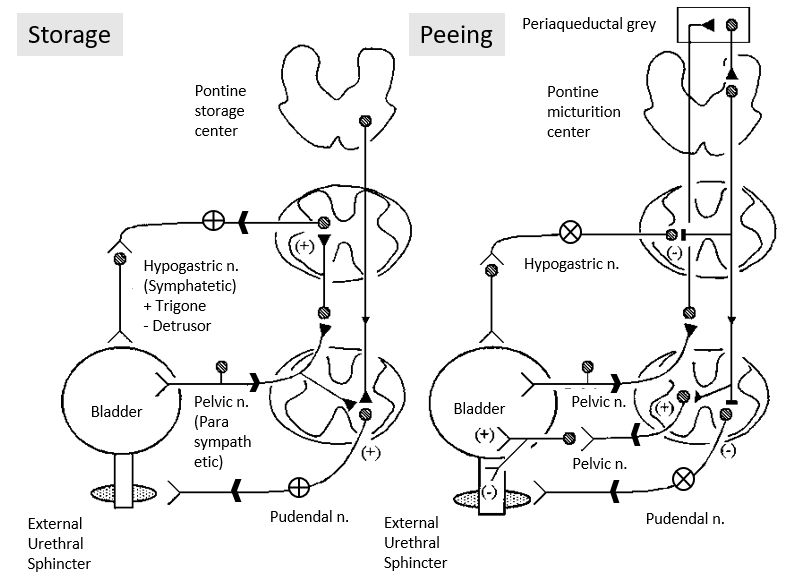
Micturition reflex
Micturition (Urination) is the ejection of urine from the urinary bladder through the urethra to the outside of the body. It is a type of reflex with voluntary control. The micturition cycle occurs in 2 phases: Urinary Storage Mnemonic: Storage = Sympathetic 1. Stimulus: Urine filling until tension in the…
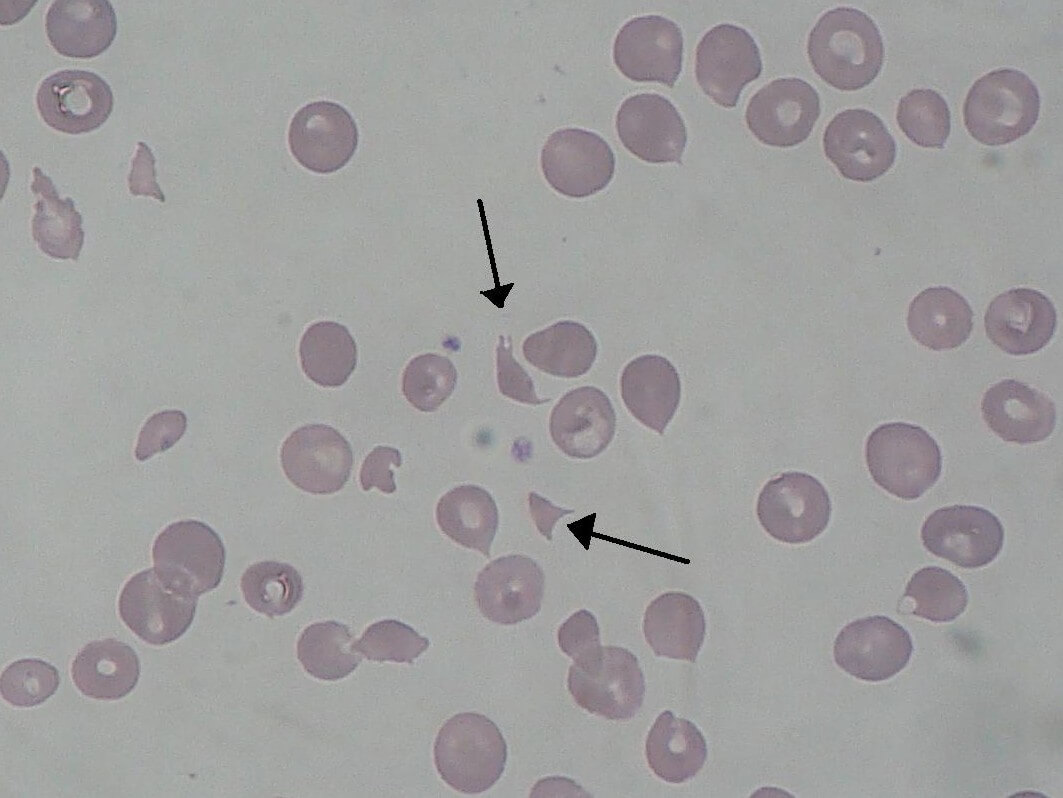
A Child with Fever, Diarrhea, AKI, Hematuria, Altered senosrium and Anemia
Case Scenario A 3 year boy form Western region presented at Emergency Room in a state of altered sensorium. The child was well 5 days back, but since then he is been having fever and loose stool. The episode of illness started with fever, measured upto 102 F, was on…
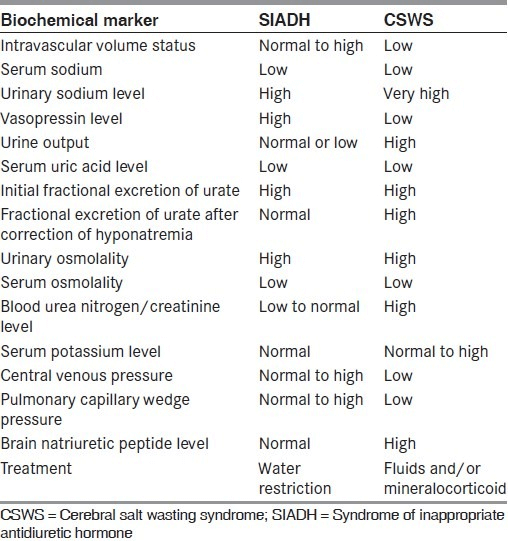
Hyponatremia : SIADH vs Cerebral Salt Wasting Syndrome
SIADH causes Mnemonic: SIADH Surgery Intracranial – Infection, Head injury, CVA Alveolar – Carcinoma, Pus Drugs – Opiates, Antiepileptics, Cytotoxics, Anti-psychotics Hormonal – Hypothyroid, Low corticosteroid level SIADH diagnostic criteria Mnemonic: SOD-IUM/S Serum Osmollity Decreased (<275 mOsm/kg) Increased Urine Molality/osmolality (>100 mOsm/kg) Increased Urine Sodium/Na+ (>40 Meq/L) Others: Euvolemic (Normal…
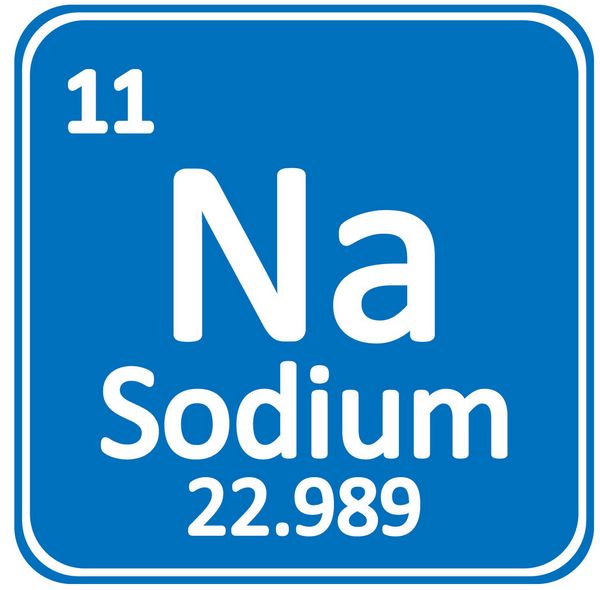
Hyponatremia Correction: Rules and Mnemonics
Corrected sodium level When hyperglycemia is present, the underlying sodium concentration (corrected sodium concentration) can be estimated by adding 1.6-2.4 mEq/L (average of 2 mEq/L) to the reported sodium concentration for every 100 mg/dl increase in plasma glucose above 100 mg/dl. E.g. In a patient with Na+ level, 145 and…
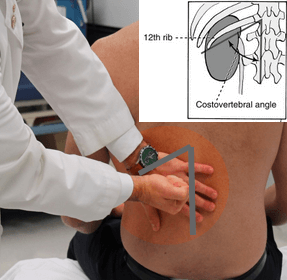
Costovertebral or Renal angle tenderness
Synonyms: Murphy’s kidney punch, CVA tenderness (CVAT) Anatomy of Costovertebral angle or Renal angle: Costovertebral angle is formed by the junction of the 12th, or lowermost, rib with the paravertebral muscles, which run parallel to and on both sides of the vertebral column. Eliciting costovertebral angle tenderness: Position of patient:…
